by Nikolai von Kreitor
Ex: http://www.amerika.org
The most fundamental principle in geopolitics is the principle of Grossraum (=Great Area) formulated by the prominent German jurist Carl Schmitt in his book Völkerrechtlishe Grossraumordnung mit Interventionsverbot für Raumfremde Mächte (1) and seen by him as a foundation for the science of international law and international relations.
A Grossraum is an area dominated by a power representing a distinct political idea. This idea was always formulated with a specific opponent in mind; in essence ,the distinction between friend and enemy would be determined by this particular political idea. As an example Carl Schmitt cited the American Monroe Doctrine and its concept of non-intervention by foreign powers in the American Raum. “This is the core of the original Monroe Doctrine, a genuine Grossraum principle, namely the union of politically awakened people, a political idea and, on the basis of this idea, a politically dominant Grossraum excluding foreign intervention.”
Carl Schmitt’s knowledge and sense of history were equaled by his ability to define core issues. That ability enabled Schmitt to quickly grasp the essence of national foreign policy , articulate it in his book, relate the idea and implementation of the American Monroe Doctrine to the concept of Grossraum , subject Grossraum to analysis, incorporate it into the framework of international law and contrapose American Grossraum to a new German Grossraum, opposed to and competing with the American. By subjecting Grossraum to scholarly investigation and by placing it in the context of global politics, Schmitt had hoped to enlarge the horizon of learning and to update the state-centered system of international law to include relations between Grossräume (Different Great Areas).(2)
In so doing he subjected the political theology of American expansionism, the American state-policy and objectives of world domination formulated and codified in the Monroe Doctrine and its various extension, to a demystifying and critical analysis showing that the essence of Wilsonian universalism before, during and after the World War II was in fact an insidious ideology to equate American national interest, American expansionism and the principles of the Monroe Doctrine with the interest of mankind(3). Discussing emerging political realities , Schmitt noted that Germany needed to formulate her own Grossraum and to conceptualize the nature of international law as a relationship between different Grossräume, rejecting thereby the universalistic claims of the United States.
The center of Carl Schmitt’s discussion was the geopolitical and the ideological substance of the Monroe Doctrine, especially the series of ideas articulated prior to Theodore Roosevelt’s reinterpretation of it justifying a “capitalist imperialism”(4) and Woodrow Wilson’s reinterpretation that sough to justify a “kind of pan-interventionist world ideology”(5) , i.e. to justify the principles of the Monroe Doctrine and the new international law it created in the Western Hemisphere to principles valid for the whole world. The substance of the new American international law, created by the Monroe Doctrine, was in fact an absence of international law, understood traditionally as law of nations created by mutual consent of those nations, in the Western Hemisphere, since the Monroe Doctrine postulated that the only source of the new international law was the will of the United States. According to Schmitt the Monroe Doctrine, historically seen, was the vehicle of American subjugation of the Latin American countries and transformation of those countries into virtual American protectorates.
President Woodrow Wilson’s objectives at the end of the W.W. I to elevate the principles of the Monroe Doctrine to universally valid principles for the whole world was in fact America’s first bid for world domination. On April 12, 1919, at the Paris Peace Conference , President Wilson assured the delegates that the Monroe Doctrine was “the real forerunner of the League of Nations” and asked rhetorically ,”Indeed are we not assembled here to consecrate and extend the horizon of this document as a perpetual charter for all the world.”(6)
The Monroe Doctrine, that nineteenth-century formulation of American foreign policy, has according to Schmitt a profound relevance for the Germany of his day. Though Schmitt recognized that the realities of power politics in the Western Hemisphere of the nineteenth century were different from those on the European continent of the twentieth century , he realized that the Monroe Doctrine had extended the parameters of international relations. As far as Schmitt was concerned, the Monroe Doctrine was “the first and until now the most successful example of a Grossraum principle”(7) that had over a period of time acquired validity, for it was referred to in every important text and dictionary of international law and was defended by the United States as “an expression of the inalienable right to self-defense”(8) Calling the Monroe Doctrine, i.e. the American expansionism, a “right to self-defense”, clearly showed the substance of American political theology-the ideological justification of U.S. imperialism as well as the equation in the ideology of expansionism with self-defense: an important ideological component that will became a center-peace of American mystification of U.S. expansionism.
Carl Schmitt points out that at the end of the W.W. I, at the Paris Peace-conference which resulted in the Treaty of Versailles and the creation of the League of Nations , United States succeeded to include the Monroe Doctrine in the Article 21 of the League’s Covenant. Inclusion of the Monroe Doctrine in the Article 21 in the League of Nation’s Covenant, which reads “Nothing in this Covenant shall be deemed to affect the validity of international engagements, such as treaties of arbitration or regional understandings like the Monroe Doctrine, for securing the maintenance of peace.” symbolized for Carl Schmitt Europe’s defeat by the United States and the end of the old Jus Publicum European, which had been the foundation for all preexisting international relations. For one thing , the League of Nations, purportedly an universal international organization and predecessor of the United Nations, was excluded from asserting any jurisdictional claims in the American Grossraum, i.e. the Western Hemisphere. Western Hemisphere was excluded from the purview of the League. Thus the United States asserted the pre-eminence of its will and the ordering principles of her Grossraum, i.e. her unrestricted hegemony in the Western Hemisphere, over the League of Nations.
Schmitt emphasizes that before Grossraum could be anchored in international law it had to be legitimized by a political idea. The geopolitical and ideological conviction behind the original Monroe Doctrine, proclaimed in 1823 – the belief that the Americas had to be defended from the “status quo powers of legitimacy”(9) , the Holly Alliance, the European Con-cert formed after the defeat of Napoleon – justified its proclamation and gave it credibility. President James Monroe announced the doctrine in response to rumored intervention in America of the Holy Alliance. The United States justified its policy on the basis of its inalienable right of self-defense , a principle on which international law is found. Hence the declaration warning the members of the Holy Alliance that the United States “would consider any attempt on their part to extend their system to any portion of this hemisphere as dangerous to our peace and safety” and that the U.S. government would “view any interposition for the purpose of oppressing them, or controlling in any other manner their destiny, by any European power in no other light than as manifestation of an unfriendly disposition toward the United States”. As a corollary of the principle of nonintervention, Monroe declared that the United States was committing itself to a policy of non-intervention “in the internal concerns of any European powers.”(10)
Carl Schmitt notes that the Monroe Doctrine , originally proclaimed as a vehicle of defense against interventionism and European colonialism, transformed itself into it’s opposite, becoming the main legal and ideological instrument of American interventionism, expansionism, economic imperialism and colonization of the Western Hemisphere.(11) The language of the Monroe Doctrine lended itself to a political-semantic corruption of the English language: American interventionist policies were still presented as defense, American colonialism was heralded as establishment of democracy, installation of puppet regimes in Latin-America serving their American masters was called a preservation of civilized forms of government, the many repeated American military interventions to keep the puppet regimes in power and to expand American economic penetration – a peace-keeping operations and, quite consistent with what George Orwell would latter call a New Talk, the enslavement of Latin-American countries, their transformation into protectorates was heralded as enlargement of the frontiers of freedom.
The interventionist substance of the Monroe Doctrine was clearly emphasized in 1904, in the so called Roosevelt Corollary pronounced by President Theodore Roosevelt shortly after the Hague Peace Conference the same year. Roosevelt proposed to make an exception to general international law in favor of the Western Hemisphere and this exception were to be made by ” a unilateral American pronouncement , not through a universally agreed amendment to international law.”(12) Roosevelt explicitly rejected the notion that the new international law in the Western Hemisphere could be created through multilateral, inter-American action, instead, Roosevelt asserted, its creation was only through unilateral action by the United States, i.e. the source of the new international law was solely the will of the United States.
“Instead of abolishing intervention in the Western Hemisphere, Roosevelt explicitly sanctioned this practice and claimed for the United States a monopoly of the right to engage in it… Finally the Roosevelt corollary applied to American intervention of all kind and for whatever purpose.”(13) The new international law in the Western Hemisphere, as formulated by Theodore Roosevelt, was in fact an absence of international law, or, to put it in another way, the foreign expansionist policy of the United States was elevated into a quasi international law. Thus the Roosevelt corollary defined the principle of organization and control of geopolitical space under American domination. That principle of domination suspended the operation of general norms of international law and elevated the imperialist will of the United States into the sole normative source. Or, as Secretary of State Olney had earlier expressed it: “United States is the sole sovereign in the Western Hemi-sphere and its will is a fiat.” Carl Schmitt also emphasized the territorial criterion of the Monroe Doctrine for the international law. He noted that the doctrine introduced territorial lines of delineation and demarcation into the body of international law, infused the international law with the concept and substance of geopolitics.
THE CONCEPT OF GERMAN GROSSRAUM
Based on the perception that the Monroe Doctrine provided the precedent for justification for both German and Japanese Grossraum, Schmitt observed that the traditional Eurocentric order underlying international law- relations between and among sovereign states- had been superseded by relations between and among sovereign Grossräume(14) As far as Germany was concerned , her Grossraum consisted, according to Schmitt’s view during the 30-ties, predominantly of Central and Eastern Europe. Though Schmitt failed to define the precise territorial dimensions of Germany’s Grossraum, he cited the Monroe Doctrine as the basis for maintaining that Grossraum in not something abstract and diffuse but contains “recognizable territorial limits”(15).
According to the Monroe Doctrine, Schmitt argued, the leading or hegemonial power is the one that determines the governing political idea for its realm. United States asserted the political idea that it had the hegemonial right to exclude from the Western Hemisphere any foreign power, or any foreign influence. After the end of the Word War I United States also asserted that the newly formed international organization , the League of Nations , was also excluded from asserting any jurisdiction in the Western Hemisphere. Schmitt emphasized that the new German Grossraum , seen by him as analogous to the American Grossraum, should also exclude any foreign interference, and above all American influence, and argued for the proclamation of a Ger-man Monroe Doctrine. Schmitt rejected the false universalist claims of the United States and noted that as a matter of principle non-interference by European states in the affairs of the American continent cannot be justified unless the United States likewise refrains from interference in the affairs of the European continent. In Carl Schmitt’s view geopolitics and international law have been joined in the Germanic Monroe Doctrine underlying the German Grossraum.
Carl Schmitt defined also the concept of a national Grossraum principle by extending his analysis to encompass the Reich . Though “the concept of Grossraum belongs to the concept of Reich (Empire, Realm) , the two are not identical because “not every state or every people within the German Grossraum is part of the Reich”. A Reich, according to Schmitt, “is the leading and sustaining power whose political idea radiates over a specific Grossraum”. And the code that governs relations between Grossräume is that of nonintervention.(16) Schmitt asserted that in the middle of Europe the German Reich faces the interventionist claims of the Anglo-Saxon pseudo-universalism. Against those claims it contraposes the principle of national life style “based on the principle of national respect.”(17)
Whereas relations between Grossräume were to be governed by the principle of nonintervention , intra-Grossraum relations in Schmitt’s construct were to be based on respect for every nation and nationality. Although in Schmitt’s configuration this connoted a policy of domination exercised without the need to resort to the extraordinary means of intervention , decision about whether to intervene, reflecting power-political realities, would not be made in any capital of the German Grossraum other than Berlin. One possible justification for intervention in a nation in the Reich was that it pursued foreign policy goals inimical to the security interests of Germany. In another work Carl Schmitt defines the Reich as “the leading and supporting powers whose political idea is radiated over a specified major territory and which fundamentally exclude the intervention of extra-territorial powers with regard to this territory.”(18)
It should be noted that Carl Schmitt, while recognizing that the historically changing world order and nature of international relations necessitated the reformulation of the international law in terms of equal relationship between competing Grossräume, he nevertheless never advocated an unrestricted expansion of a singular Grossraum i.e. geopolitical objectives of total world hegemony by for example Germany. Quite to the contrary : the substance of his work Grossraum gegen Universalismus is a strong criticism of the American ideology of universalism and from that ideology derived foreign policy on which U.S. embarked in a limited scope during the presidency of Theodore Roosevelt, and which became the ideological hallmark of the Wilsonianism during and after the World War I.
American universalism , emphasized Schmitt, globalized the principles of the Monroe Doctrine to principles valid for the whole world i.e. to universal principles and thus , ideologically and politically, laid claims for extension of American hegemony in the Western Hemisphere to a hegemony over the whole world. American objectives for world conquest and domination used the ideology of universalism to revise the geographical limitations of the Monroe Doctrine- the very principle of geographical delimitation and demarcation of the concept of Grossraum- and to justify American interventionism in the European continent. While American universalism was a rejection of the idea of co-existence of different Grossräume and thus not only a rejection of the concept of Grossraum with its principles of geographic delimitation but also a claim for global world hegemony, so was also Hitler’s concept of Lebensraum which served as an ideological device for foreign policy objectives of establishment first of German continental hegemony and latter of global world hegemony . In other words there were ideological and geopolitical similarities between Wilson’s universalism and Hitler’s Lebensraum. Both Wilsonian universalism and Nazi-Germany’s Lebensraum were falsification of a genuine Grossraum principle and both universalism and Lebensraum rejected the very notion of international pluralism, of co-existence of Grossräume.
Both universalism and Lebensraum as concepts were antithetical to Schmitt’s concept of territorial limits of Grossraum and both universalism and Lebensraum encompassed no territorial limits serving as ideological justification for global world domination.(19)
In formulating the concept of Grossraum Carl Schmitt wanted to broad the framework of international law to include relations between Grossräume. His concept allowed for the rational conduct of international relations and provided a compelling principle for the international law that would correspondent to new historical realities.
THE RELEVANCE OF THE CONCEPT OF GROSSRAUM FOR RUSSIA
Prior to the dissolution or , I would rather say, subversion of the Soviet Union in 1991, in the bipolar world of two superpowers , there existed two competing Grossräume ( Great Areas) or two opposing political blocks, each with its sphere of influence and thus geographical delimitation and demarcation: the Atlantic Grossraum, dominated by the United States, and the Eurasian Grossraum, dominated by the Soviet Union. The political competition between the two blocks gave a substantial latitude for autonomy and independence for countries included in the sphere of influence of the two blocks. However after 1991 a completely new world order has been created. The bipolar world landscape of two superpowers has been transformed into a mono landscape of one superpower imposing its will on the rest of the world. The concept of a New World Order, propounded first by President Bush and now implemented by the neo-Wilsonian foreign policies of President Clinton, must be seen as a realization and assertion of the principles on the Monroe Doctrine to principles valid for the whole world, or, in other words, as a Roosevelt corollary for the whole world, with a new international law equated with the U.S.’s will. The globalization of the Monroe Doctrine , the pronouncement of the Bush/Clinton corollary is the assertion of the legitimacy of American intervention in the world for whatever purposes United States deem necessary, in other words , it is the equation of the United States will with grounds for intervention, an equation which is not only a radical repudiation of the priciples of non-intervention contained in the United Nations Charter, and thus a repudiation of the essence and substance of the United Nations, but is also the substance of the new international law of the New World Order. In the post-Cold War political landscape , United States, invoking and asserting her principles of legitimacy of American world-wide hegemony , is in a position visavi Europe similar to the position of the former Holy Alliance visavi America in the past. American intrusion into the Eurasian geopolitical vacuum after the demise of the Soviet Union, has necessitated a formulation and implementation of a global policy of pseudo-universalism and intervention. Therefore an absolute geopolitical necessity for Russia now, tantamount to her national survival, is the re-establishment of her Grossraum, which is a prerequisite not only for the future independence of Russia but also for the independence of other European countries as well. Re-establishment of the Russian Grossraum and a necessary new geopolitical alliance, which one my symbolically call “a second Treaty of Rapallo”, will be the beginning of disintegration of the global system of American universalism and interventionism and thus a necessary prerequisite for the rebirth of America-free Europe. During the interwar years, in the Europe after the Treaty of Versailles , Carl Schmitt, observing the universalist claims of international law of American and British imperialism, asserted that “behind the facade of general norms of international law lies, in reality, the system of Anglo-Saxon world imperialism”(20)
Today, observing the new American expansionism, the American invasion in the geopolitical vacuum of the Eurasian Grossraum, the decline and fall of the United Nations and the perversion of this international body into a legitimacy facade for the United States bid for world conquest and hegemony in the New World Order , one may say, as it was said once before by Carl Schmitt , that behind the facade of general norms of international law , lies now in reality the system of American world imperialism and expansionism. For the substance of the New World Order is the globalization of the American hegemony without any geographical limitations, the triumph of the old Wilsonian universalism or the neo-Wilsonian policies of President Clinton, a universalism that is a radical rejection of the notion of peaceful co-existence of Grossräume, of a pluralistic world order build on respect for existing state sovereignties.
The primary foreign policy objective of Russia must be the formulation of her own Monroe Doctrine, geographically delimiting Russian Grossraum, which would exclude the intervention on foreign powers and above all the United States.
A formulation of a Russian Monroe Doctrine implies by necessity a rejection of the pseudo-universalist claims of the American New World Order and the validity of a new international law that legitimizes that order. It also implies a firm rejection of American legal nihilism and revisionism, it mandates a restoration of a world order codified by the Helsinki Accord. Thus a Russian Monroe Doctrine will be an expression of a genuine and inalienable right to self-defense against American expansionism and it’s new territorial ambitions. Integral to the purpose of self-defense must be a Russian claim for respect for Russian minorities in any state where they are to be found as well as prevention of foreign policy inimical to the security interest of Russia , such as membership in NATO , prevention of coming into power of governments serving as agents of foreign power , in short , of governments of American Quislings.
The geographical delimitation of the Russian Grossraum is the territory of the former Soviet Union, countries belonging to the former socialist block , including Yugoslavia, now subjected to a war of aggression by the United States.
A Russian Grossraum can only be a genuine, geographically delimited Grand Area and the international law it would create will be, according to Carl Schmitt’s visions, an international law encompassing the co-existence of Grossräume and thus a rejection of the international law of the New World Order- the universalization of American principles of legitimization of global and unlimited American expansionism and domination. A peaceful co-existence of Grossräume can hardly be achieved without the geopolitical expulsion of the United States from Eurasia.
In the past the United States has been successful in theologization of American geopolitical objectives of world domination – the ideology of Wilsonian pseudo universalism-and demonization of geopolitical competitors and thus rejection of the very notion of geopolitical pluralism. The restoration of the Russian Grossraum is therefore the only guaranty for international peace and renewed respect for international law, constructed not as the will of the United States but as the collective will of sovereign countries and geopolitical blocks. Russian Grossraum is the only guaranty against the future anti-utopia of a Monroe Doctrine for the whole world.
The historical necessity and actuality of a new Russian Grossraum, excluding American interference in Eurasia, confluence with Charles de Gaulle’s vision of a free Europe from Atlantic to Urals and beyond to Vladivostok, which could only exist as America-free Europe. Without a reconstitution of a Russian Grossraum, the future not only of Russia but also of other European countries, will be the present of Latin America. In other worlds, the historical necessity of a Russian Grossraum is a decision for a future of freedom and national and cultural authenticity, a decision against the future as American protectorate. And again, the Russian choice is also the choice of Europe.
ENDNOTES
(1) Carl Schmitt -Völkerrechtliche Grossraumordnung mit Interventionsverbot für Raumfremde Mächte- Ein Bitrag zum Reichsbegriff im Völkerrecht (Duncker & Humblot, Berlin, 1991)
(2) some authors trace the concept of Grossraum in earlier writings of Friedrich Naumann and others. “According to their concept of Mitteleuropa , modern political, economic, and technological considerations necessitated the creation of a German empire in the center of Europe that would allow Germany to survive in a world dominated by political units larger than a typical European nation-state, namely Russia, the British Empire , and the United States..Raumtheorie was first established as a specialized field of study in the twenties , when it became an integral part of the developing sciene of geopolitics” -see Joseph W. Bendersky-Carl Schmitt (Princeton University Press, Princeton, 1983) – at p. 251
(3) Carl Schmitt – Grossraum gegen Universalism in Positionen und Begriffe im Kampf mit Weimar- Genf- Versailles 1923-1939 (Duncker & Humblot , Berlin , 1988)
(4) Carl Scmitt -Völkerrechtlische Grossraumordnung – ibid. p. 37
(5) Carl Schmitt- Völkerrechtlische Grossraumordnung- ibid. pp 38-39
(6) Stephen Bonsal -Unfinished Business (New York, 1944) pp. 184-185; also Arthur P. Whitaker-The Western Hemisphere Idea (Cornell University Press, New York, 1954) at p. 125
(7) Carl Schmitt- Völkerrechtlische Grossraumordnung- ibid. p. 23
(8) Carl Schmitt- Völkerrechtlische Grossraumordnung- ibid. pp. 17, 19, 27-30
(9) Carl Schmitt- Völkerrechtlische Grossraumordnung- ibid. p. 34
(10) see Thomas A. Bailey – A Diplomatic Hisstory of the American People (Englewood Cliffs, N.J., 1980), pp. 183-184
(11) see Carl Schmitt -Völkerrechtliche Formen des modernen Imperialismus in Schmitt Positionen und Begriffe
(12) Arthur P. Whitaker- The Western Hemisphere Idea -ibid. – p. 100
(13) Arthur P. Whitaker- The Western Hemisphere Idea -ibid. – p. 100
(14) Carl Schmitt – Volkerrechtliche Grossraumordnung- ibid. p. 76, 77, 81
(15) Carl Schmitt – Volkerrechtliche Grossraumordnung- ibid. p. 16
(16) Carl Schmitt – Volkerrechtliche Grossraumordnung- ibid. p. 66
(17) Carl Schmitt – Volkerrechtliche Grossraumordnung- ibid. p.71
(18) Carl Schmitt – Der Reichbegrif in Völkerrecht in Positionen und Begriffe – ibid. at p. 303
(19)in fact American universalism can be seen as Lebenraum for American economic imperialism
(20)Carl Schmitt – Völkerrechtliche Formen des modernen Imperialismus ibid. p.43



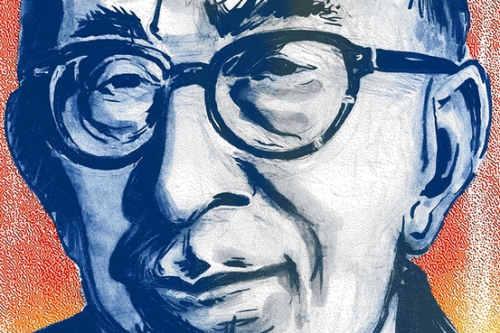
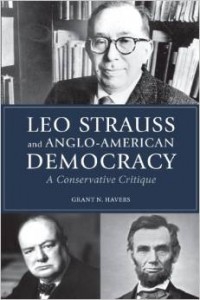 Amain pillar sustaining the practice of mass immigration is that Western nations are inherently characterized by a “civic” form of national membership. Western nations express the “natural” wishes of “man as man” for equal rights, rule of law, freedom of expression, and private property. Mainstream leftists and conservatives alike insist on the historical genuineness of this civic definition. This civic identity, they tell us, is what identifies the nations of Western civilization as unique and universal all at once. Unique because they are the only nations in which the idea of citizenship has been radically separated from any ethnic and religious background; and universal because these civic values are self-evident truths all humans want whenever they are given the opportunity to choose.
Amain pillar sustaining the practice of mass immigration is that Western nations are inherently characterized by a “civic” form of national membership. Western nations express the “natural” wishes of “man as man” for equal rights, rule of law, freedom of expression, and private property. Mainstream leftists and conservatives alike insist on the historical genuineness of this civic definition. This civic identity, they tell us, is what identifies the nations of Western civilization as unique and universal all at once. Unique because they are the only nations in which the idea of citizenship has been radically separated from any ethnic and religious background; and universal because these civic values are self-evident truths all humans want whenever they are given the opportunity to choose. Strauss’s vehement opposition to communism coupled with his enthusiastic defense of American democracy, as it stood in the 1950s, created the erroneous impression that he was a “right wing conservative.” But, as Havers explains, Strauss was no less critical of “right wing extremists” (who valued forms of citizenship tied to the nationalist customs and historical memories of a particular people) than of the New Left. Strauss believed that America was a universal nation in being founded on principles that reflected the “natural” disposition of all humans for life, liberty, and happiness. These principles were discovered first by the ancient Greeks in a philosophical and rational manner, but they were not particular to the Greeks; rather, they were “eternal truths” apprehended by Greek philosophers in their writings against tyrannical regimes. While these principles were accessible to all humans as humans, only a few great philosophers and statesmen exhibited the intellectual and personal fortitude to fully grasp and actualize these principles. Nevertheless, most humans possessed enough mental equipment as reasoning beings to recognize these principles as “rights” intrinsic to their nature, so long as they were given the chance to deliberate on “the good” life.
Strauss’s vehement opposition to communism coupled with his enthusiastic defense of American democracy, as it stood in the 1950s, created the erroneous impression that he was a “right wing conservative.” But, as Havers explains, Strauss was no less critical of “right wing extremists” (who valued forms of citizenship tied to the nationalist customs and historical memories of a particular people) than of the New Left. Strauss believed that America was a universal nation in being founded on principles that reflected the “natural” disposition of all humans for life, liberty, and happiness. These principles were discovered first by the ancient Greeks in a philosophical and rational manner, but they were not particular to the Greeks; rather, they were “eternal truths” apprehended by Greek philosophers in their writings against tyrannical regimes. While these principles were accessible to all humans as humans, only a few great philosophers and statesmen exhibited the intellectual and personal fortitude to fully grasp and actualize these principles. Nevertheless, most humans possessed enough mental equipment as reasoning beings to recognize these principles as “rights” intrinsic to their nature, so long as they were given the chance to deliberate on “the good” life.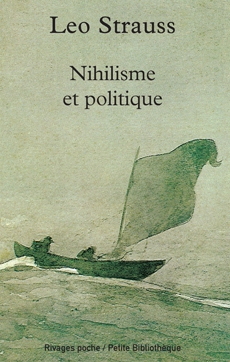 Havers also challenges the Straussian elevation of such figures as Lincoln, Churchill, Roosevelt, Hobbes, and Locke as proponents of an Anglo-American tradition founded on “timeless” Greek ideas. He shows that Christianity was the prevailing influence in the intellectual development and actions of all these men. Havers imparts on the readers a sense of disbelief as to how the Straussians ever managed to exert so much influence on American conservatism (to the point of transforming its original emphasis on traditions and communities into a call for the spread of universal values across the world), despite proposing views that were so blissfully indifferent to “readily available facts.”
Havers also challenges the Straussian elevation of such figures as Lincoln, Churchill, Roosevelt, Hobbes, and Locke as proponents of an Anglo-American tradition founded on “timeless” Greek ideas. He shows that Christianity was the prevailing influence in the intellectual development and actions of all these men. Havers imparts on the readers a sense of disbelief as to how the Straussians ever managed to exert so much influence on American conservatism (to the point of transforming its original emphasis on traditions and communities into a call for the spread of universal values across the world), despite proposing views that were so blissfully indifferent to “readily available facts.”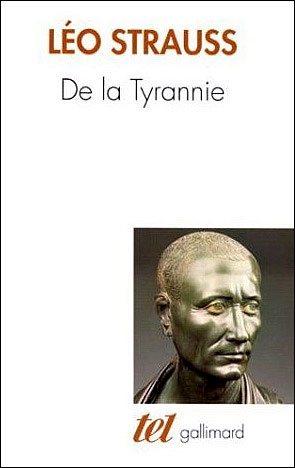 Now, Straussians could well respond that the Anglo-American identity is different, consciously dedicated to universal values, but, as Havers carefully shows, this emphasis on the philosophy of natural rights cannot be properly understood outside the religious ancestry of the founders, and (although Havers is less emphatic about this) outside the customs, institutions and ethnicity of the founders. As the Australian Frank Salter has written:
Now, Straussians could well respond that the Anglo-American identity is different, consciously dedicated to universal values, but, as Havers carefully shows, this emphasis on the philosophy of natural rights cannot be properly understood outside the religious ancestry of the founders, and (although Havers is less emphatic about this) outside the customs, institutions and ethnicity of the founders. As the Australian Frank Salter has written:
 del.icio.us
del.icio.us
 Digg
Digg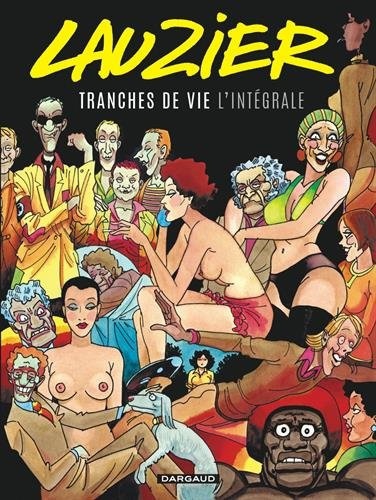
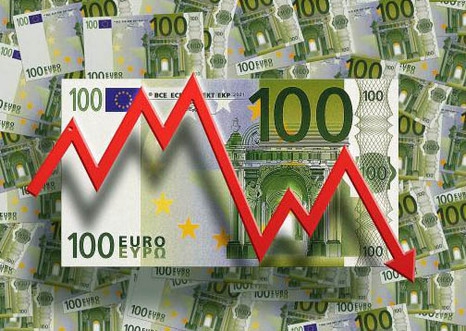
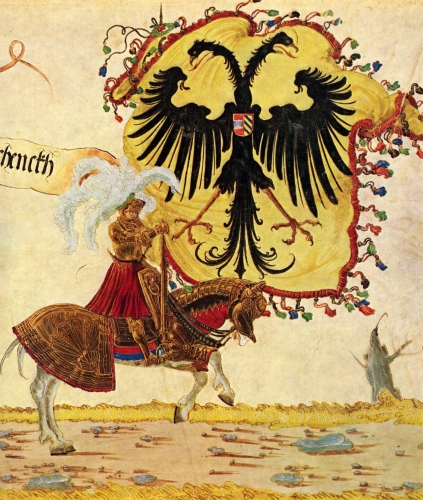
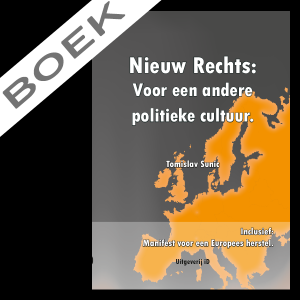
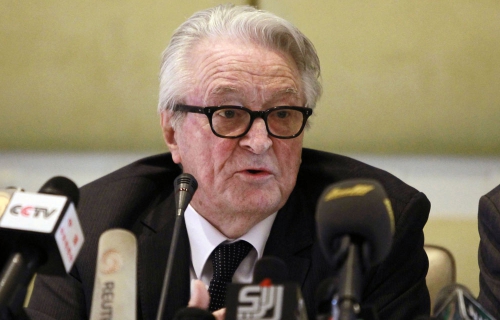


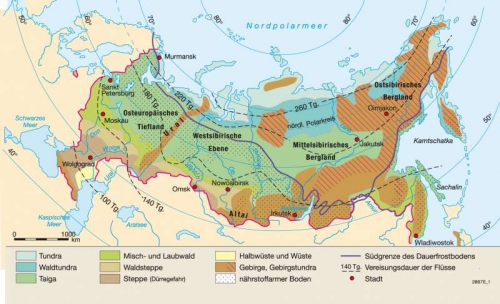
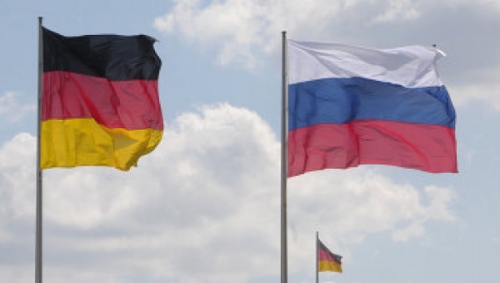
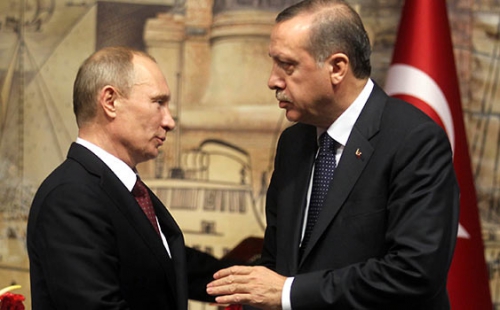

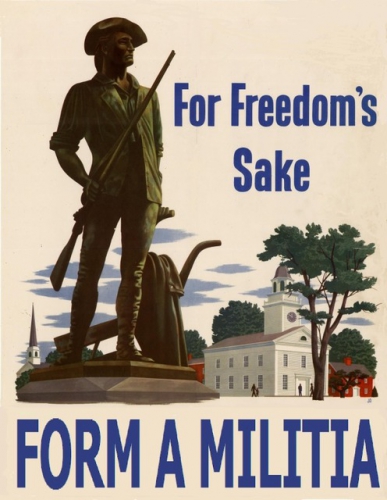




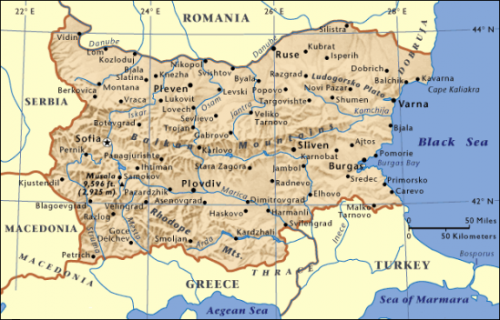
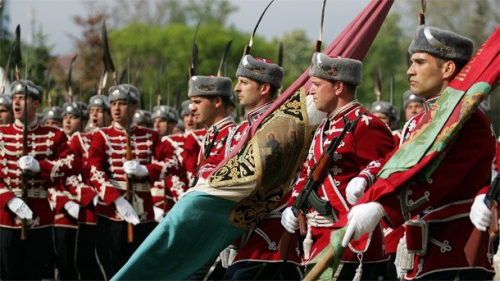
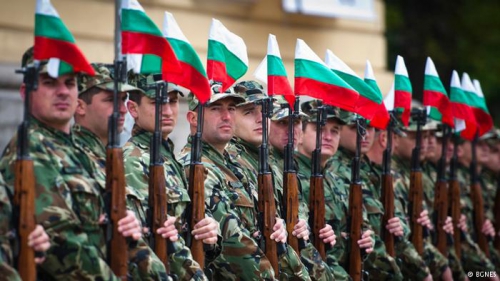

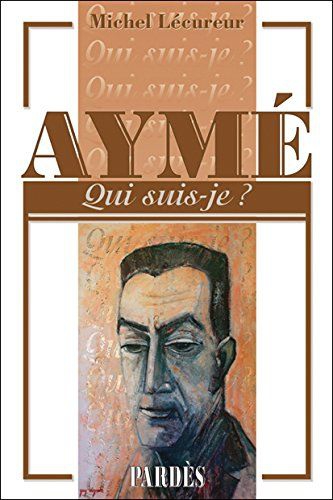
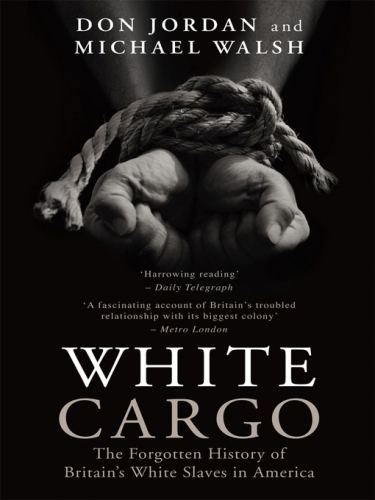 En 1541 Enrique VIII, el mismo que repudió a Catalina de Aragón y creó la Iglesia Anglicana con él al frente, se proclamó como rey de Irlanda. Durante medio siglo los ingleses fueron conquistando el país, con una última gran batalla en Kinsale en 1602, en la que participaron unos 3.500 soldados españoles. Los ingleses vencieron, y en ese momento expulsaron del país a los resistentes irlandeses (muchos fueron a España o a sus territorios europeos). A esos expatriados irlandeses se les llamó “Gansos Salvajes” y los hubo durante todo el siglo y parte del siguiente.
En 1541 Enrique VIII, el mismo que repudió a Catalina de Aragón y creó la Iglesia Anglicana con él al frente, se proclamó como rey de Irlanda. Durante medio siglo los ingleses fueron conquistando el país, con una última gran batalla en Kinsale en 1602, en la que participaron unos 3.500 soldados españoles. Los ingleses vencieron, y en ese momento expulsaron del país a los resistentes irlandeses (muchos fueron a España o a sus territorios europeos). A esos expatriados irlandeses se les llamó “Gansos Salvajes” y los hubo durante todo el siglo y parte del siguiente.

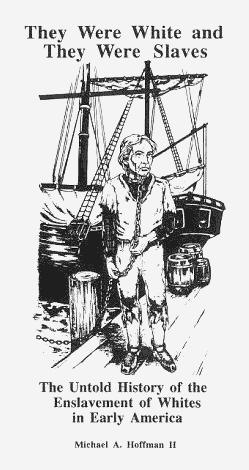 A efectos religiosos, los irlandeses católicos no eran considerados cristianos y no tenían derecho a asistencia religiosa (tampoco la tenían los católicos libres en Inglaterra).
A efectos religiosos, los irlandeses católicos no eran considerados cristianos y no tenían derecho a asistencia religiosa (tampoco la tenían los católicos libres en Inglaterra).